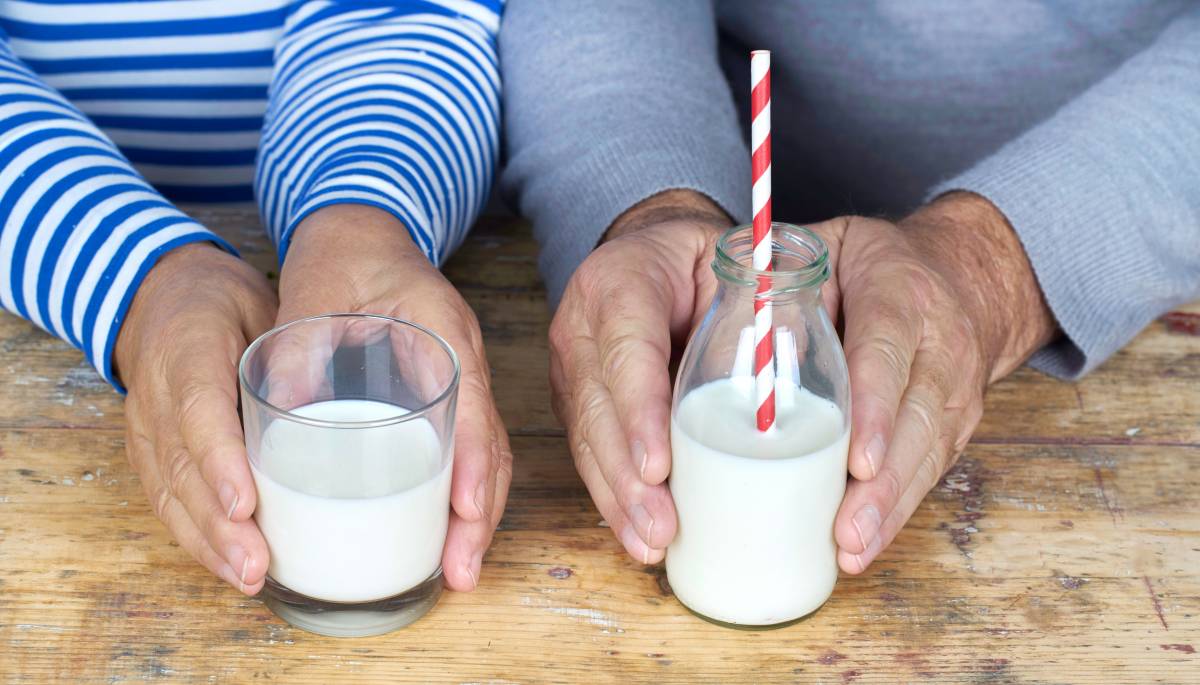Improving older people's diets in care settings led to fewer falls and fractures, study shows
Supplementing the diets of older people with items such milk, yoghurt, and cheese helped to reduce the number of falls and fractures occurring in a number of care settings, according to a study published in the latest edition of The BMJ.
The finding is important because, as the paper notes, almost one third (30 per cent) of hip fractures are estimated to occur among older adults in care settings. Those in such settings often have low intakes of calcium and protein – a factor linked to weak bones and an increased risk of falls and fractures.
The findings could also have implications for the 'wider community', the team suggests.

Randomised control trial
A research team led by Sandra Iuliano, a senior research fellow at the departments of medicine and endocrinology, Austin Health, University of Melbourne, conducted a two-year trial among more than 7,000 residents (72 per cent of them women; average age 86) in 60 Australian care facilities.
The study is something of a rarity, in that it examines whether obtaining certain nutrients from foods – rather than supplements – is safe and effective. The researchers say their approach has ‘widespread implications as a public health measure for fracture prevention’.
An earlier study, cited in the paper, showed that giving pharmacological doses of calcium and vitamin D to women living in nursing homes – and who had histories of low calcium intakes and vitamin D deficiency – cut the rate of hip fractures.
International team
Dr Iuliano and her colleagues, some of whom were based in the Netherlands and the US, examined whether ensuring residents’ diets included daily intakes of calcium (1,300 mg) and protein (1 g/kg body weight) from food sources would reduce the risk of fragility fractures and falls.
The residents' original diets were replete in vitamin D, but their daily calcium and protein intakes were below recommended levels.
In the randomised control trial, 30 facilities provided residents with additional milk, yoghurt, and cheese – achieving intakes of 1,142 mg calcium/day and 1.1 g protein/kg body weight/day. The remaining 30 control facilities continued with their usual menu: 700 mg/day calcium and 0.9 g protein/kg body weight/day).
Data from 27 intervention facilities and 29 control facilities revealed that a total of 324 fractures (135 hip fractures), 4,302 falls and 1,974 deaths occurred during the study period.
The intervention was associated with risk reductions of:
- 33 per cent for all fractures (121 compared to 203)
- 46 per cent for hip fractures (42 compared to 93)
- 11 per cent for falls (1,879 compared to 2,423)
'Widespread implications'
This nutritional intervention has widespread implications as a public health measure for fracture prevention in the aged care setting and potentially in the wider community [Sandra Iuliano et al.]
An analysis showed that there were no group differences in mortality from all causes, and that the relative risk reduction for fractures was similar to that found in trials using potent drug therapy to increase bone strength in people with osteoporosis.
Acknowledging that their study has certain limitations, the researchers note that using dairy foods to improve calcium and protein intakes is a ‘readily accessible intervention that reduces risk of falls and fractures commonly occurring in institutionalised older adults’.
They add: 'This nutritional intervention has widespread implications as a public health measure for fracture prevention in the aged care setting and potentially in the wider community.'
To see the full version of the article, titled Effect of dietary sources of calcium and protein on hip fractures and falls in older adults in residential care: cluster randomised controlled trial, visit: https://www.bmj.com/content/375/bmj.n2364
Author: Ian A McMillan
Share it with














